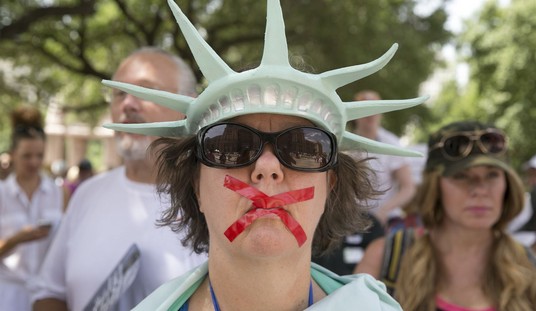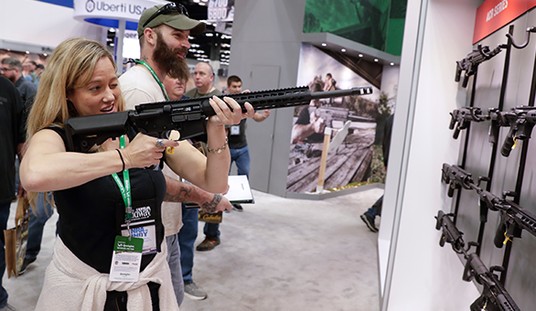There are actually two separate cases dealing with Second Amendment challenges to federal and state gun laws have been decided by the Third Circuit Court of Appeals in recent days, and now the next stop for both lawsuits will be the Supreme Court. Though there’s no guarantee that SCOTUS will accept either case, much less both of them, the questions raised in the lawsuits will provide justices the opportunity to substantively address two issues that could impact tens of millions of gun owners, as well as hundreds of thousands of Americans who might like to exercise their right to keep and bear arms but are currently barred from doing so.
The first case is called Folajtar vs. United States, and according to legal analyst Jonathan Turley, it seems like litigation that’s almost sure to pique the interest of Justice Amy Coney Barrett.
The Third Circuit case concerns Lisa Folajtar who was denied the right to own a firearm. The reason was her pleading guilty in 2011 to willfully making a materially false statement on her tax returns. The plea led to a sentence of three-years’ probation, including three months of home confinement, a $10,000 fine, and a $100 assessment. She also paid the IRS over $250,000 in back taxes, penalties, and interest.
The case falls into the still grey area around the individual right articulated in 2008. The Supreme Court recognized that this is not an “unlimited” right under the Constitution while affirming the right of “law-abiding, responsible citizens to use arms in defense of hearth and home.” Moreover, the Court ruled two years later that Heller “did not cast doubt on such longstanding regulatory measures as ‘prohibitions on the possession of firearms by felons.’”
The question is whether this means any and all felons, even those never accused of violent acts. The law at issue is 18 U.S.C. § 922(g)(1). Originally, in 1938, the Congress prohibited only gun ownership to those who were convicted of “crimes of violence.” That limited the denial of gun ownership to those convicted of murder, manslaughter, rape, mayhem, kidnapping, burglary, housebreaking and various types of aggravated assault.
That changed in the 1960s when Congress expanded the bar on gun ownership. That however was long before the Heller decision recognized gun ownership as an individual constitutional right.
As Turley goes on to explain, Folajtar is in essence making the same argument that another felon named Rickey Kanter used to try to regain his Second Amendment rights in a case that Barrett heard while serving on the Eleventh Circuit Court of Appeals. In that case, Barrett was in the minority when she opined that the Founders never intended for all felons to lose their right to keep and bear arms permanently. Instead, she argued that the history and tradition of the Second Amendment limits the loss of rights only to those determined to be “dangerous.”
Now that Barrett’s on the Supreme Court, it seems likely that she’d want to accept a case like this, and she could soon get her chance.
The other case coming out of the Third Circuit is a challenge to New Jersey’s ban on the possession of ammunition magazines that can hold more than ten rounds. New Jersey’s law is functionally identical to California’s magazine ban, which is also facing a court challenge, but the New Jersey case may get to SCOTUS ahead of it.
Earlier this week the Third Circuit denied an en banc review of a 2-1 decision upholding the ban, and the Association of New Jersey Rifle & Pistol Clubs, which brought the lawsuit, is now free to appeal to the Supreme Court to hear the case. The California magazine case, known as Duncan vs. Becerra, is currently in the Ninth Circuit, and has been accepted for an en banc review, but oral arguments in the case have yet to take place.
As it stands, the Ninth Circuit has ruled that California’s ban violates the Constitution, while the Third Circuit has said New Jersey’s nearly identical ban is just fine. The Supreme Court typically wants to see a split like this in the appellate courts before they agree to hear a case, so that could up the odds of four justices opting to accept ANJRPC vs. Grewal when and if the plaintiffs appeal to the high Court.









Join the conversation as a VIP Member